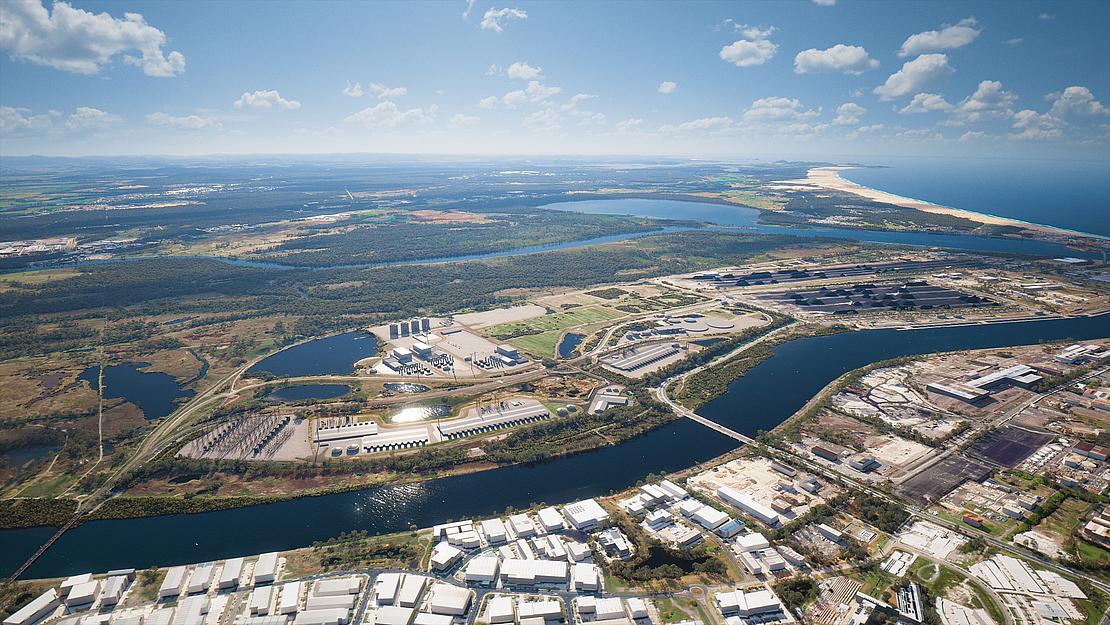06.11.2025
HPC to develop final business case for Port of Newcastle’s Clean Energy Precinct
HPC Hamburg Port Consulting (HPC) has been appointed by Port of Newcastle to develop a final business case for its Clean Energy Precinct (CEP), reflecting Australia’s deepening energy cooperation with Europe. Drawing on its global track record in port operations and hydrogen logistics, HPC will assess the market and business potential for green ammonia production, storage, and export at the CEP site.

Supporting a once‑in‑a‑generation transformation
The CEP is Australia’s most advanced clean‑energy value chain project which spans 220 hectares of redeveloped industrial land in Newcastle. Backed by A$100 million in Federal Government funding, the project is set to cut around 660,000 tonnes of domestic and 1 million tonnes of export carbon emissions each year, with green ammonia shipped to international markets. For a port long defined by energy exports, this marks a generational shift toward a low‑carbon, diversified future.
HPC’s remit is to translate the vision into a commercially viable plan, identifying market opportunities, partnerships, and investment models aligned with global hydrogen demand. The work will position Port of Newcastle as a key gateway in the international hydrogen supply chain, supporting Australia’s export ambitions and Europe’s decarbonisation goals.
Statements from the partners
“Developing a final business case that reflects stronger Australia-Europe energy links is essential to realising our clean‑energy vision,” said Craig Carmody, CEO of Port of Newcastle.
“It builds on our partnerships, including the Port of Hamburg agreement for a green shipping corridor, and will give us the insights needed to attract investment and guide infrastructure funding through schemes like H2Global. This is about applying commercial discipline to achieve our Net Zero 2040 commitment.”
“Port of Newcastle is writing the next chapter of its history, and we’re excited to contribute,” said Christina Prieser, Associate Partner at HPC. “Our role is to help structure the business case in a way that balances ambition with commercial logic – looking at how green ammonia could fit into future transport flows, where market demand might emerge, and what it takes to move from potential to practical next steps.”
Bridging clean energy logistics with sound economic planning
HPC has supported numerous public and private sector clients in assessing the technical and economic feasibility of port-related investments. Its work spans business case development, infrastructure evaluation, and market analysis for both conventional and emerging energy systems.
In recent years, HPC has been increasingly involved in projects focused on the integration of hydrogen and its derivatives into transport chains – advising on storage, handling, and distribution concepts across terminals, industrial clusters, and logistics networks.
This combined expertise – in both energy logistics and strategic planning – will contribute to the development of a robust final business case for the Clean Energy Precinct, aligning Port of Newcastle’s ambitions with market realities and long-term investment logic.
Through this partnership, HPC will help Port of Newcastle finalise a robust business case that supports targeted investment, risk reduction, and infrastructure planning, further establishing the Port as Australia’s leading hub for sustainable trade and clean‑energy exports.